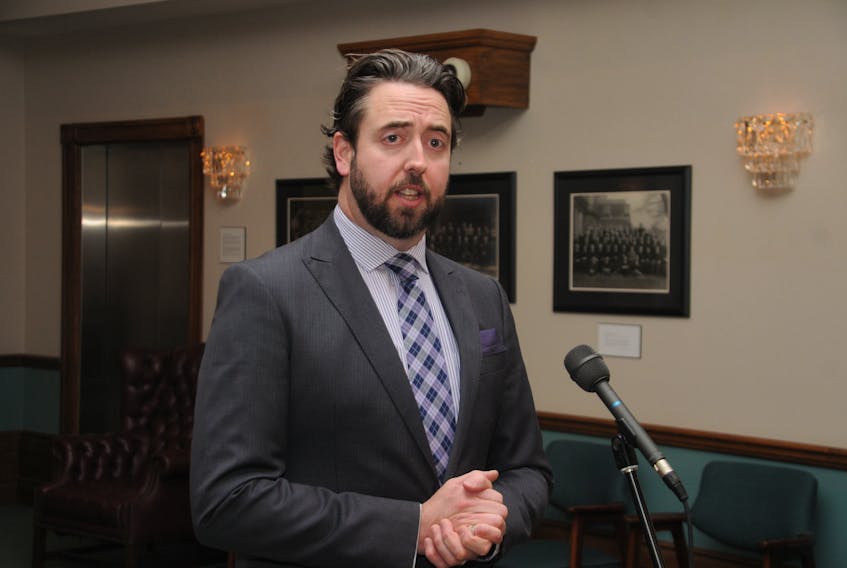The Liberal government is sleepwalking through the current fiscal and economic crisis.
During the June sitting, Justice Minister Andrew Parsons introduced a motion in the House of Assembly to approve a pay raise for the province’s provincial court judges.
I spoke against the resolution, pointing out that the judges’ pay tribunal heard evidence of our pre-COVID-19 fiscal condition, which is now badly out of date.
“We have run out of time,” as the premier told the prime minister.
Government’s best defence against the potential judges’ legal action feared by the minister, is to demonstrate awareness of the scope and severity of the post-COVID-19 fiscal and economic crisis and implement measures to deal with it.
As Health Minister John Haggie declared on the same day Parsons moved the resolution, “the world has changed.” His colleagues in the Liberal cabinet have not yet caught up with this news.
Before the COVID-19 tsunami hit in March, members of the PC caucus would have had no issue with implementing the recommendations of the independent tribunal.
The minister of Justice inexplicably delayed bringing forward the required resolution for a full year after he received the tribunal’s report.
Parsons attempted to justify the resolution in favour of a raise by relying on a 2018 court decision, which rejected his attempt to turn down a previous tribunal recommendation on judges’ pay. After the government turn down, the judges appealed to a lower court.
Parsons lost the case. He lost the case not because serious fiscal concerns cannot be weighed in constitutional litigation, but because the government’s response to the fiscal situation was irrational.
The court stated: The government has failed… to make a rational connection between the problem identified, the fiscal pressures facing the government, and its proposed freeze of judges’ salaries. It has singled out judges as the only group to experience a salary freeze… It has not outlined a comprehensive program for expenditure reduction…
The Liberal government deferred Parson’s June resolution intended to give judges the raise recommended by the tribunal. A vote will take place sometime in the future.
The government should study the case developed by a previous Liberal government under then premier Clyde Wells. Judges’ pay was not directly in issue, but the relevance of severe fiscal crisis to constitutionally protected rights squarely was.
In a 2004 decision, the Supreme Court of Canada upheld the constitutionality of a legislated expenditure reduction program which took aim at a collective agreement on pay equity. Government agreed to make a payment to redress systemic gender discrimination against employees in female dominated occupations. Three years later, the same government passed the Public Sector Restraint Act in order to erase three years of pay equity arrears and save $24 million, while also implementing a variety of other severe austerity measures.
The Supreme Court concluded: It seems to me the severity of these measures, including the cut to pay equity, corroborated the government’s statement that it believed itself, on reasonable grounds, to be in the middle of a fiscal crisis.
The government should study the case developed by a previous Liberal government under then premier Clyde Wells. Judges’ pay was not directly in issue, but the relevance of severe fiscal crisis to constitutionally protected rights squarely was.
I mention the pay equity case not to diminish the fundamental justice of pay equity, or to suggest that any of the austerity measures of the Wells government are appropriate today, but to show that courts will defer to severe fiscal considerations if government lays out the facts and implements a plan.
The government is sleepwalking through a severe fiscal and economic crisis. It has no plan to deal with the crisis except to plead for help from Ottawa, while pretending that government spending should carry on as usual.
Judicial independence is a fundamental constitutional value. Parsons should bring back the resolution on judges’ pay, after debate on the budget in the fall, when the legislature can evaluate the judges’ pay resolution in its entire economic and fiscal context.
Then we can make a decision based on right legal principle that the judges, the people and the courts can understand.
Ches Crosbie,
MHA Windsor Lake,
Official PC Opposition Leader









